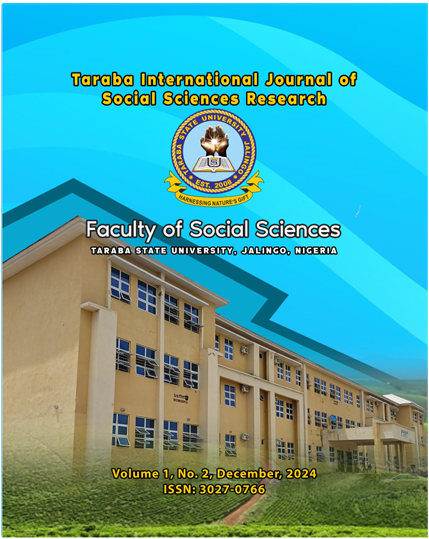ECONOMIC AND FINANCIAL CRIMES COMMISSION AND ANTI-CORRUPTION FIGHT IN NIGERIA
Keywords:
Anti-Corruption, Corruption, EFCC, NigeriaAbstract
This paper examined the nature and dynamics of corruption and the challenges of the Economic and Financial Crimes Commission (EFCC), in its anti-corruption fights in Nigeria since 2004. The objectives of the paper are to evaluate and proffer solutions to the numerous challenges of the anti corruption campaigns by the EFCC in Nigeria’s political development. Corruption has been
considered the major cause of Nigeria’s socioeconomic and political underdevelopment. The paper relies on secondary sources of data and uses a qualitative descriptive method of data analysis. The paper discusses different types of corruption and historicizes the three phases of the anti-corruption war in Nigeria from 1960 till date. The institutional theory was adopted as theoretical framework of
analysis. The finding of the paper reveals that despite challenges bedeviling the EFCC remarkable progress have been made in the areas of prevention, arrest, and prosecution of offenders. However, the major challenges are funding and political interference which undermines the commission's claim of independence and objectivity. The paper recommends that for Nigeria to win the anti-corruption war there is the need for political will to fight corruption by leaders, transparency, and accountability in governance, deployment of smart technology, combining the role of civil society and media to act as a watchdog, and finally the introduction of corruption into the Nigerian educational curriculum at all levels.

